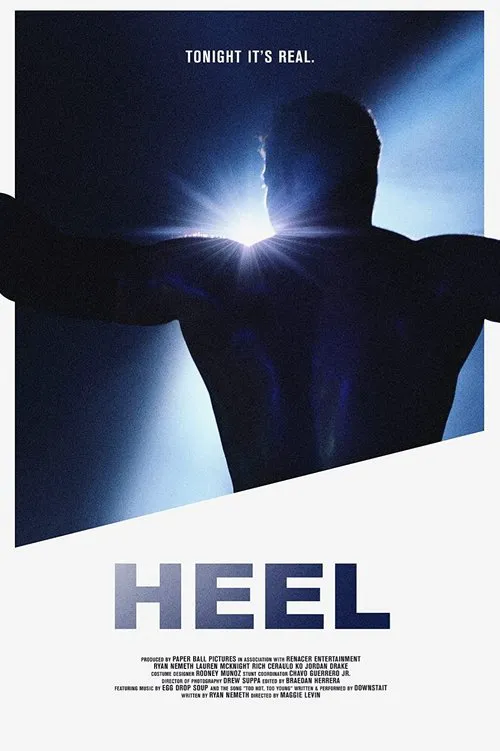Heel

Plot
In the dimly lit, smoky backstage area of a rundown pro wrestling arena, a group of worn-out wrestlers huddle around a makeshift table, their faces illuminated only by the flickering fluorescent lights above. The tension in the air is palpable as they deliberate over their next move, the outcome of their livelihood hanging precariously in the balance. This is the world that HEEL, a narrative short film, dares to expose – a dark and lawless realm where the bright lights and charismatic bravado of the ring belie the harsh realities of addiction, exploitation, and corruption. At the center of this maelstrom is Jake, a grizzled veteran of the industry, whose own struggles with addiction and self-destruction have taken a toll on his personal and professional life. A former champion, Jake's once-promising career has stalled, and he is now forced to scrape by on the fringes of the company, eking out a meager existence in a world that no longer values his contribution. As he pours himself yet another shot of cheap whiskey, his eyes scan the room with a mixture of desperation and despair, a testament to the all-consuming nature of his addiction. As the conversation between the wrestlers shifts to the recent allegations of sexual misconduct leveled against one of their own, a sense of unease settle over the group. The news has sent shockwaves through the industry, exposing long-standing problems of harassment and exploitation that have been swept under the rug for far too long. Amidst the whispers and speculation, Jake's gaze lingers on a younger wrestler, Alex, who stands at the periphery of the group, his eyes cast downward in an attempt to appear detached from the drama unfolding around him. Unbeknownst to the others, Alex has just signed a lucrative contract with the company, one that promises to elevate him to stardom – but at a cost that will soon prove to be too high to bear. As the night wears on, and the drinking continues to flow, the boundaries between reality and fantasy begin to blur. The wrestlers' discussions grow more aggressive, their words laced with a toxic mix of jealousy, resentment, and frustration. It becomes clear that the pressures of the industry have taken their toll on the individuals involved, pushing them to make choices that prioritize their careers over their well-being. Jake, with his own demons to contend with, is drawn into the vortex of the conversation, his participation a testament to the suffocating grip that addiction has on his life. In a pivotal moment, the group's conversation turns to the notion of "heels," a term used to describe wrestlers who play the role of the antagonist in the ring. But in HEEL, this concept takes on a twisted meaning, exposing the dark underbelly of a profession where exploitation and manipulation are rampant. The wrestlers' discussions reveal a culture of entitlement, where those in power prey on their fellow performers, taking advantage of their vulnerability and desperation. The film's title, HEEL, becomes a commentary on the very idea of what it means to be a heel – not just a wrestler who plays the villain, but a human being who has been stripped of their dignity and agency. As the night wears on, and the group's conversation devolves into chaos, Jake's struggles with addiction are laid bare. In a deeply personal and poignant moment, he breaks down, his body wracked with sobs as he confronts the demons that have haunted him for so long. The scene is a masterclass in emotional depth, capturing the anguish and despair that can often follow the highs of the pro wrestling world. Jake's collapse serves as a stark reminder of the true cost of the industry's excesses, where the line between success and despair is perilously thin. The film's portrayal of the wrestling industry is unflinching, a scathing critique of a world where exploitation and corruption have long gone unchecked. Through the eyes of Jake and Alex, HEEL exposes the dark truths that lie beneath the glitz and glamour of the ring. As the curtain closes on the film, it is clear that this world is one that requires radical change – a revolution that must begin with a recognition of the value and worth of the individuals involved. By shining a light on the harsh realities of the industry, HEEL serves as a powerful call to action, urging audiences to think critically about the worlds they consume, and the human beings behind the spectacle.
Reviews
Recommendations



